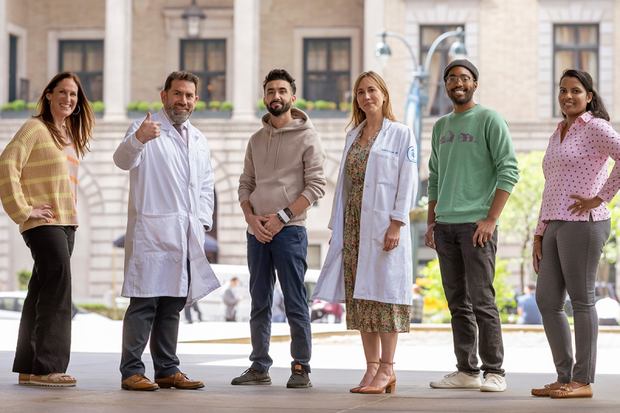Notch Up Another Win for Successful New Cancer Therapies
"I don't think anyone has seen this before, where every single patient has had the tumour disappear.""All fourteen patients? The odds are exceedingly low and really unheard of in oncology."Dr.Andrea Cercek, oncologist, Memorial Sloan Kettering Cancer Center, New York"This new treatment is a type of immunotherapy, a treatment that blocks the 'don't eat me' signal on cancer cells enabling the immune system to eliminate them.""The treatment targets a subtype of rectal cancer that has the DNA repair system not working. When this system isn't working there are more errors in proteins and the immune system recognizes these and kills the cancer cells."CBS News medical contributor Dr. David Agus
 |
A six-month experimental treatment undertaken at Memorial Sloan Kettering Cancer Center in New York has excited the medical world of colorectal cancer, with researchers hailing the study as groundbreaking, a development that has the potential to lead to new treatment for a range of cancers. The study and its results has just been published in the New England Journal of Medicine to great acclaim.
The study was small, but the fourteen patients whose course had been completed come from diverse backgrounds; age, race and ethnicity. All of the patients shared a genetic instability in their rectal cancer; none had undergone treatment. Following the six months' course where once scans indicated knotty, discoloured tumours, at the conclusion of the course, instead they showed smooth, pink, tumour-less tissue with no traces of cancer detected by scans, biopsies or physical examinations.
Each of the patients whose course was completed was given nine doses of intravenous dostarlimab, a fairly new drug meant to block a specific cancer cell protein that could cause the immune system to withhold cancer-fighting response. None of the 14 patients who completed the trial, given its success, required planned followup treatment of chemo-radiation or surgery. None of the study participants experienced significant complications from the drug.
The trial still has an additional four patients undergoing treatment, all to this point indicating the same promising results that pertained with the original 14 participants. Some issues have been highlighted with the trial, in that the patients must undergo several additional years of observation meant to ensure the tumours do not re-emerge or metastasize elsewhere in the body.
The successful results pertain only to people who carry specific abnormality in their rectal cancer, identified as mismatch repair-deficiency, a condition impeding the body's function to normalize or 'repair' abnormalities when cells instead of dividing as they should, instead result in mutations.
Labels: Bodily Abnormalities, Cancer, Drug Trial, Research

0 Comments:
Post a Comment
<< Home